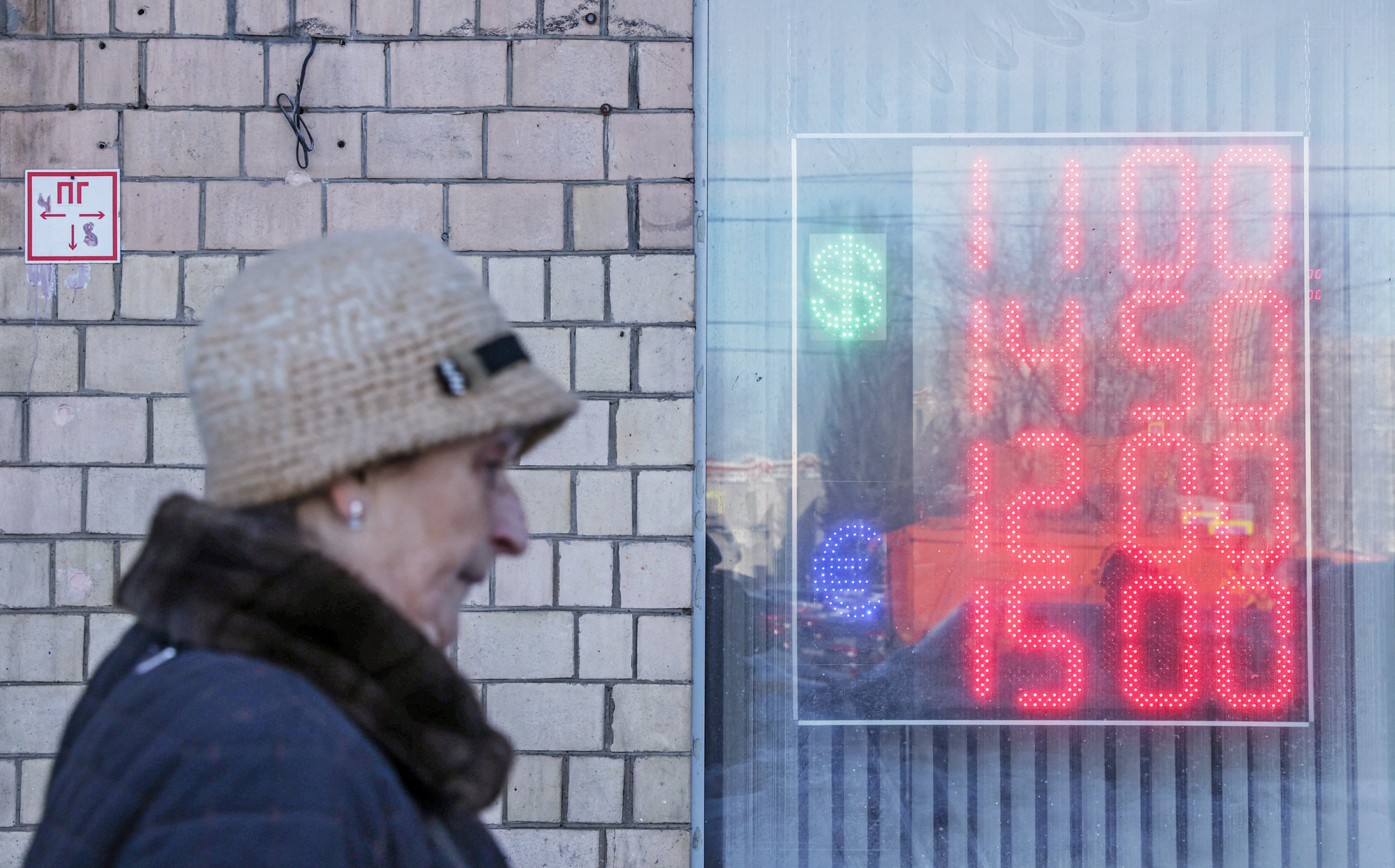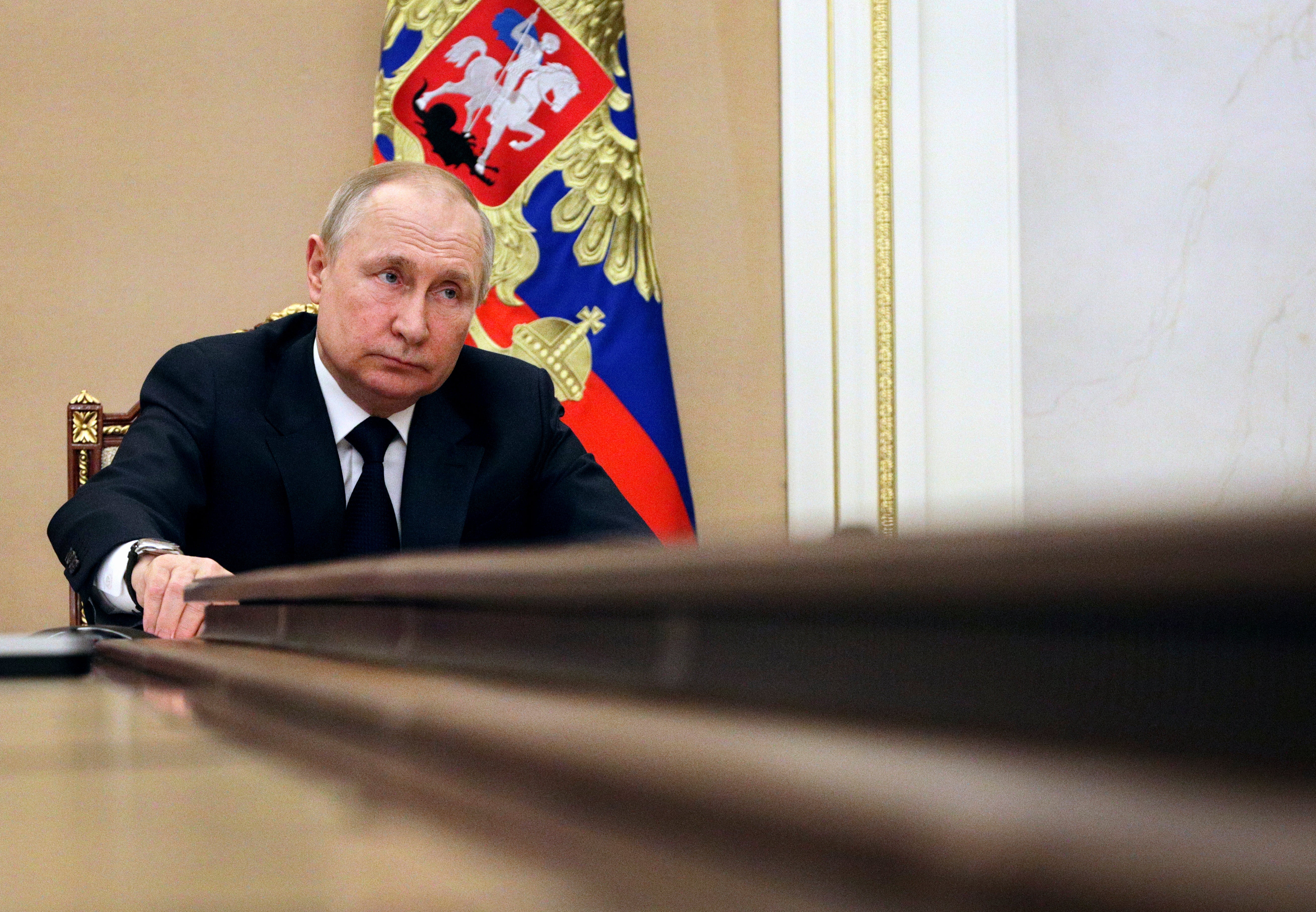What it would mean if Russia defaults on its debts for first time in two decades?
When Moscow last defaulted it caused waves around the world, but experts say it is different now as Ben Chapman explains


Russia may fail to pay some of its creditors as soon as Wednesday, with western sanctions making it increasingly likely that Moscow will default on its debts for the first time in more than two decades.
A default would be the latest indication of the pain inflicted on Russia by economic measures imposed by western leaders in response to Vladimir Putin’s war in Ukraine.
However, it would also leave investors in the west, including some pension funds, with losses and could be a sign of things to come.
What is at stake?
Russia is due to make $117m of interest payments on two government bonds (essentially IOUs issued to investors) on Wednesday, and has a one-month grace period to settle up with the owners of those bonds.
The payments must be made in dollars but Russia has been cut off from accessing large parts of its $630bn reserves of foreign currency.
The Kremlin argues that this means it should be allowed to pay in roubles at an exchange rate decided upon by the Russian government.
Since the rouble has plunged in value since Vladimir Putin ordered Russian troops into Ukraine, that is unlikely to be seen as satisfactory.
Sanctions also mean that the owners of the bonds – including western investment funds – would be barred from setting up a Russian bank account with which to receive Russian roubles.

How likely is a default?
Last week, the rating agency Fitch downgraded Russia’s sovereign debt to its second-lowest level and warned that a default was “imminent”.
The head of the International Monetary Fund, Kristalina Georgieva, said on Sunday that default was no longer “improbable”.
What would the impact if Russia doesn't pay?
Russia has issued $38.5bn of foreign-currency bonds, of which roughly $20bn are owned by overseas investors, according to data gathered by the Financial Times. Russian companies have a further $100bn outstanding.
Past defaults by the Russian government have caused major problems internationally. When Moscow failed to pay interest on its local currency debt (but not its dollar-denominated debt) in 1998, contagion rippled across the globe, causing the collapse of one of the world's largest hedge funds.
Long Term Capital Management had taken big bets on risky debt and had to be bailed out, in what many have seen as a prelude to the 2008 financial crisis.
Analysts are not as concerned this time around, although it's worth noting that many did not warn about the events of 1998 before they happened.
There are reasons to be more optimistic now. Investors began reducing their exposure to Russia after Mr Putin’s annexation of Crimea in 2014 and the current foreign holdings of Russian debt are not as significant as they were in 1998.
Several of the largest UK fund managers have already sold off as much as they can of their Russian assets.
Tougher regulations brought in since the 2008 crash also limit the amount of risk that financial institutions can take and – it is hoped – reduce the risk of contagion spreading through the wider system.
What next?
In the event of a default, bondholders (creditors) and bond issuers (debtors) typically negotiate “restructuring”. This often results in creditors accepting lower interest payments, longer repayment terms and less money back than they put in.
That process is likely to be complicated by the fact that Russia is under tough sanctions and western investors are severely limited in the interactions they can have with Moscow.






Join our commenting forum
Join thought-provoking conversations, follow other Independent readers and see their replies
Comments